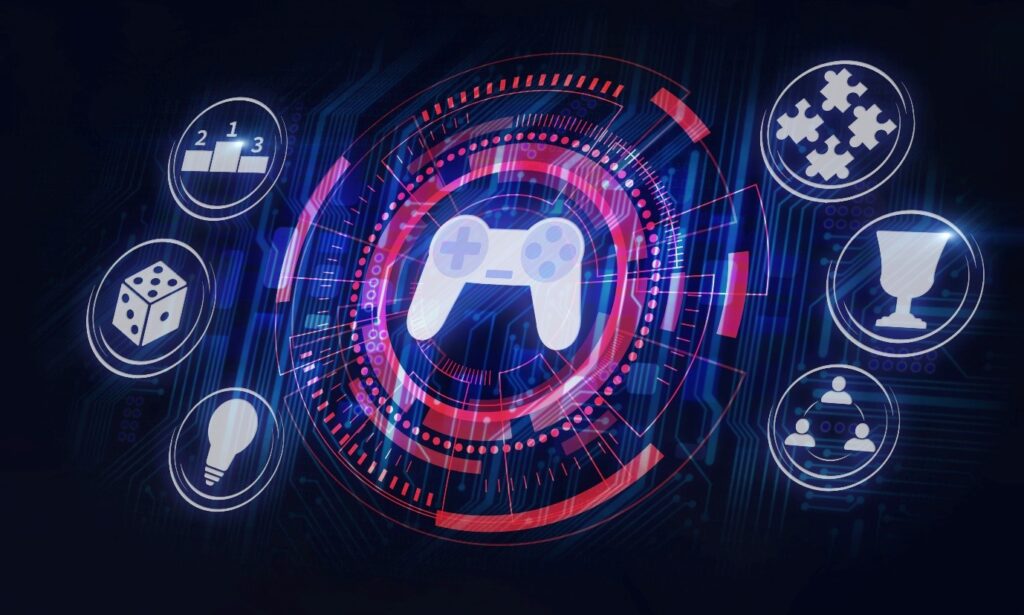The gaming industry has changed beyond all recognition in the last two decades, as internet technology and new gaming hardware have combined to make it possible to produce ultra-realistic and highly immersive titles, backed by budgets that would rival those of Hollywood blockbusters.
In such a competitive sector, game development companies are always looking for an edge, and competitive advantages are often delivered by new technology. Here are four technologies that are currently driving some of the most exciting developments in the gaming world.
Virtual reality
Virtual reality is not a new technology – at least, in terms of much of the theory behind it – but it has only started to become a regular feature in gaming in recent months, and is set to be one of the biggest drivers of change in the gaming sector in the years to come.
The success of VR has always depended on the size and expense of the technology, but the dimensions of the kit required to access VR have been falling steadily at the same time as the responsiveness and graphical quality of VR games have been increasing, while cloud VR gaming could lead to further reductions in the size of headsets.
Online gamers of the future may be able to play their games in fully immersive VR, while online casino fans could be discussing the 0 factor and various roulette strategies with fellow gamblers at a VR casino, transforming the sometimes solitary world of online casino gaming into a social experience.
The cloud
One of the biggest frustrations for gamers is the fact that it is necessary to upgrade gaming equipment every few years in order to be able to play the latest games.
Yet that era could finally be coming to an end, thanks to cloud technology. Most of the big operators in the gaming space provide their games via cloud-based subscriptions in 2023, and this model has the potential to end the dependence on upgrading physical equipment.
Gamers with smart TVs and streaming devices like Fire TV connected to super-fast 5G networks will be able to play the very latest games, as all of the game hosting and action will take place in the cloud’s data center, and the output is then beamed as streaming video to the gamer’s home. This will obviously be a great bonus for gamers, although the disruption that this may cause to the gaming market, which has long relied on gamers regularly upgrading, is unclear.
The metaverse
The metaverse concept, based around building a fully immersive online world, is most often associated with the grandiose ambitions of the likes of Facebook and Microsoft, but gamers are already familiar with the concept of interacting with others in virtual universes.
In fact, if there is to be an all-encompassing metaverse, it is most likely to develop out of a game multiverse platform, some of which have been expanding to incorporate music concerts and other non-gaming media. The fact that many game franchises are now described as platforms is an indication that the future of gaming will be increasingly flexible and based around gamers as subscribers to a variety of content related to the game rather than just logging on to play.
NFTs and blockchain
The concept of the non-fungible token (NFT) has not always been a popular one, but like the blockchain technology on which it is based, the use of NFTs is likely to persist well beyond short-term fads or hyped marketing schemes.
The use of NFTs in gaming has been proposed repeatedly in recent months, and the most likely use is to provide upgrades and new in-game equipment. Gaming companies appear to be extremely keen on the idea of bringing gaming and NFTs together, despite the misgivings of many in gaming. Therefore it is likely that this technology will have an impact on the shape of gaming in the future.
The extreme processing power and consequent high energy usage required to carry out the algorithms that are central to the blockchain are potential concerns, but that may not serve as a deterrent to gaming companies that see in-game NFTs as a lucrative opportunity. It is even possible that we may see an expansion of “play to earn” games that offer cryptocurrency payments for those who play on a daily basis.
Conclusion
Technology and the gaming industry are inextricably linked, and as technology changes, we are likely to see further exciting developments that will push back the boundaries of the gaming experience.



